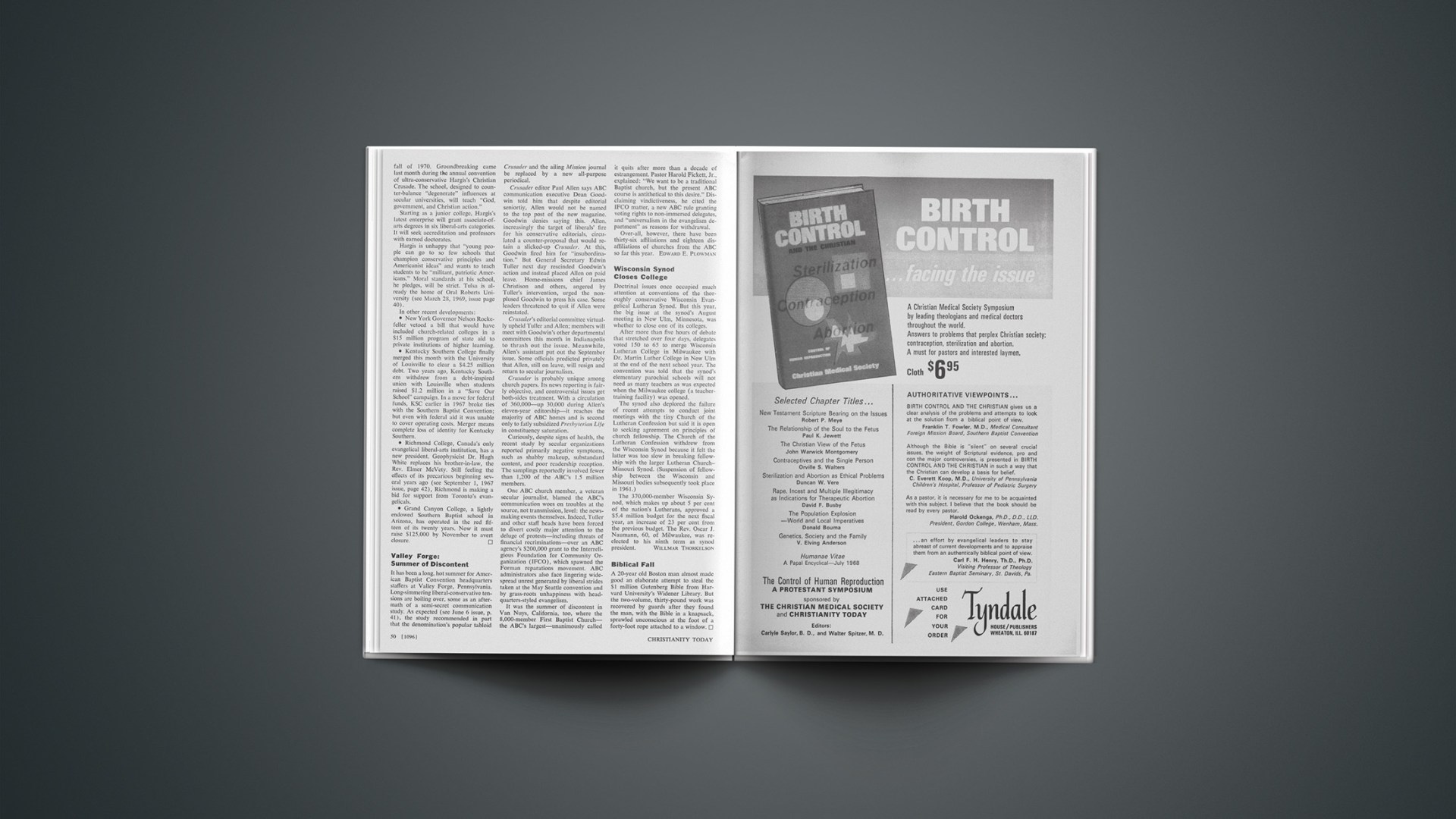Canadian Anglicans took a crucial vote last month on the touchy question of participating in communion services with other Christians. Many interpret the results as a major breakthrough toward reciprocal communion.
The vote came at the 24th biennial session of the Anglican Church of Canada’s General Synod, which includes lay delegates in addition to priests and bishops. The intercommunion decision had been referred to the synod by the church’s House of Bishops, which in turn had been requested to speak its mind on the subject by a commission working on a merger plan for the Anglicans and the United Church of Canada, the country’s largest non-Catholic denominations.
The synod met in Sudbury, northern Ontario’s largest city. Sessions were held on the picturesque new campus of Laurentian University, perched on a rocky hillside overlooking the world’s nickel capital.
During several hours of conscientious but orderly debate, one delegate compared intercommunion before union to “sleeping with a woman before you’re married to her.” The analogy was picked up by another delegate who expressed fear that the act might well produce an illegitimate birth—meaning a church split. Proponents of intercommunion appealed to the need to keep in step with the times.
The approved resolution reads: “Having received through the House of Bishops the request of the General Commission on Church Union for a revision of the present ecclesiastical discipline to permit occasions for reciprocal communion: this General Synod respectfully requests the Diocesan Bishops of the Anglican Church of Canada to permit Anglicans and members of other Christian churches to share an eucharistic practice with the full knowledge and consent of the proper authorities.”
The measure carried in all three orders decisively, the bishops by a vote of 26–9, the clergy by 84–19, and the laity by 79–11.
Inasmuch as the resolution is in the form of a request, it is still uncertain what will happen in dioceses headed by the bishops who voted negatively. The vote is nonetheless an important step toward merger with the United Church, which already has accepted the principle of the episcopacy.
DAVID E. KUCHARSKY










